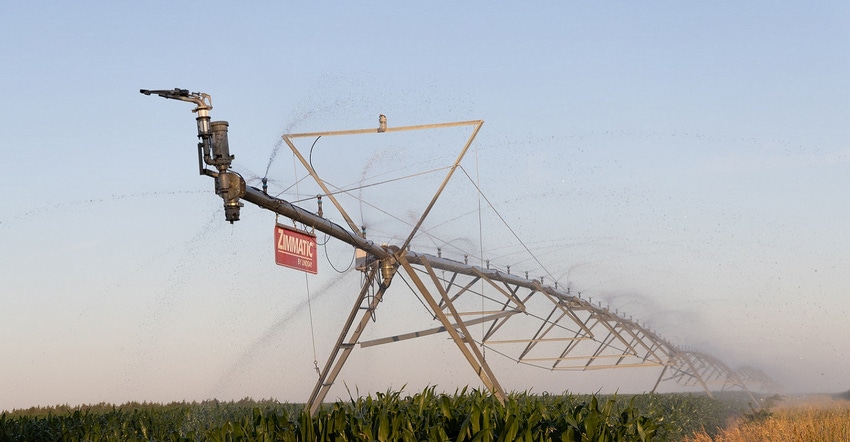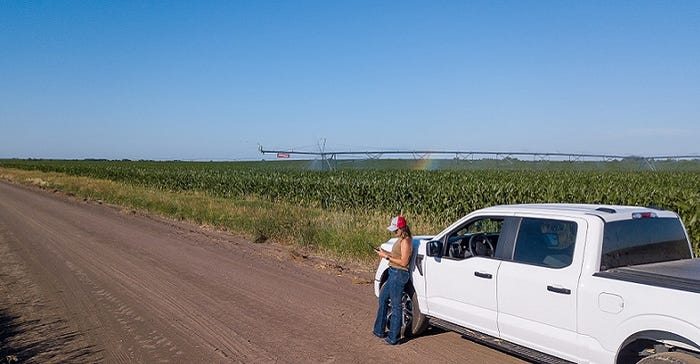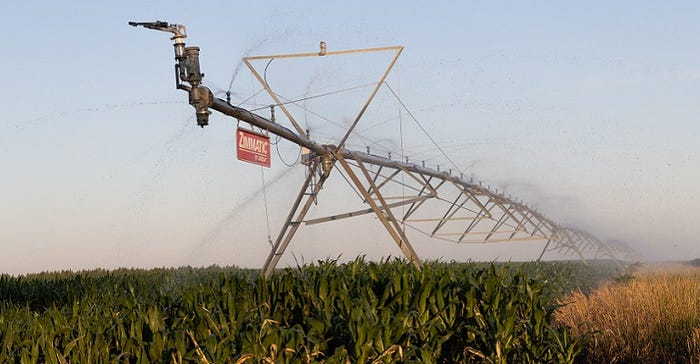September 1, 2022

Sponsored Content
Growers in Nebraska and the western U.S. have faced extreme drought challenges throughout the 2022 growing season. Heat exhaustion might lead you to turn off the pivot early, but it could cost you. Stopping irrigation too soon can stress the crop and lower yields. Not stopping soon enough adds unnecessary expense, reduces profits and may leave the field wetter than desired when it’s time to bring the crop in. There is no hard and fast date to determine when to make the last pivot pass. Growers should time their last pass on a number of factors, including predicted crop maturity date, predicted water use by crop, remaining available water in the soil and anticipated rainfall before crop maturity.
Mother Nature’s challenges and high input costs have combined to form an environment that offers unprecedented hurdles. But the perfect storm also created unique water usage opportunities for growers across the United States. For growers in the drought zone, especially across Southeast Nebraska, it has been difficult to figure out the irrigation stop point because dry conditions have pushed them to water crops more heavily and later than in past years, causing them to wonder when the irrigation season will end. In these situations, growers can continue to rely on visual inspections and complex calculations to determine water needs and use.

Another option would be taking advantage of FieldNET™ Advisor™ from Lindsay. This technology provides simple, science-based irrigation recommendations from field data, cloud-computing capabilities, machine learning and more than 40 years of crop and irrigation research. With FieldNET Advisor, growers know how much water to apply and when for every zone. Similarly, growers have the data they need to decide when it’s economically optimal to stop irrigating by using FieldNET Advisor’s unique forecasted yield loss.
“Unpredictable weather, dry conditions and lengthy drought across many parts of the country really paint a picture of the importance of precision irrigation scheduling,” Brad Dunbar, Zimmatic Regional Manager, said. “We know growers have a lot on their plate and more considerations need to be taken this season than in a typical year. We are helping to take the guesswork out of irrigation management, so growers have real-time data and insights customized to their specific field.”
By making informed decisions about water usage, growers can be confident in their choices because they’re based on recognized practices for smart irrigation scheduling. Growers can protect their crops and maximize ROI when they base decisions on agronomically and economically sound judgements.

“To me, smart irrigation means saving water with irrigation scheduling tools and enhancing the overall irrigation management and reporting performance that strengthens continuous improvement and best practices,” Dunbar said. “It also means taking into account soil, crop, growth stage, water availability, current weather and forecasted weather to make optimal irrigation decisions and save water.”
For more irrigation resources, visit the Zimmatic blog. To learn about innovation from Lindsay, visit Lindsay.com or your local dealer.
About the Author(s)
You May Also Like




